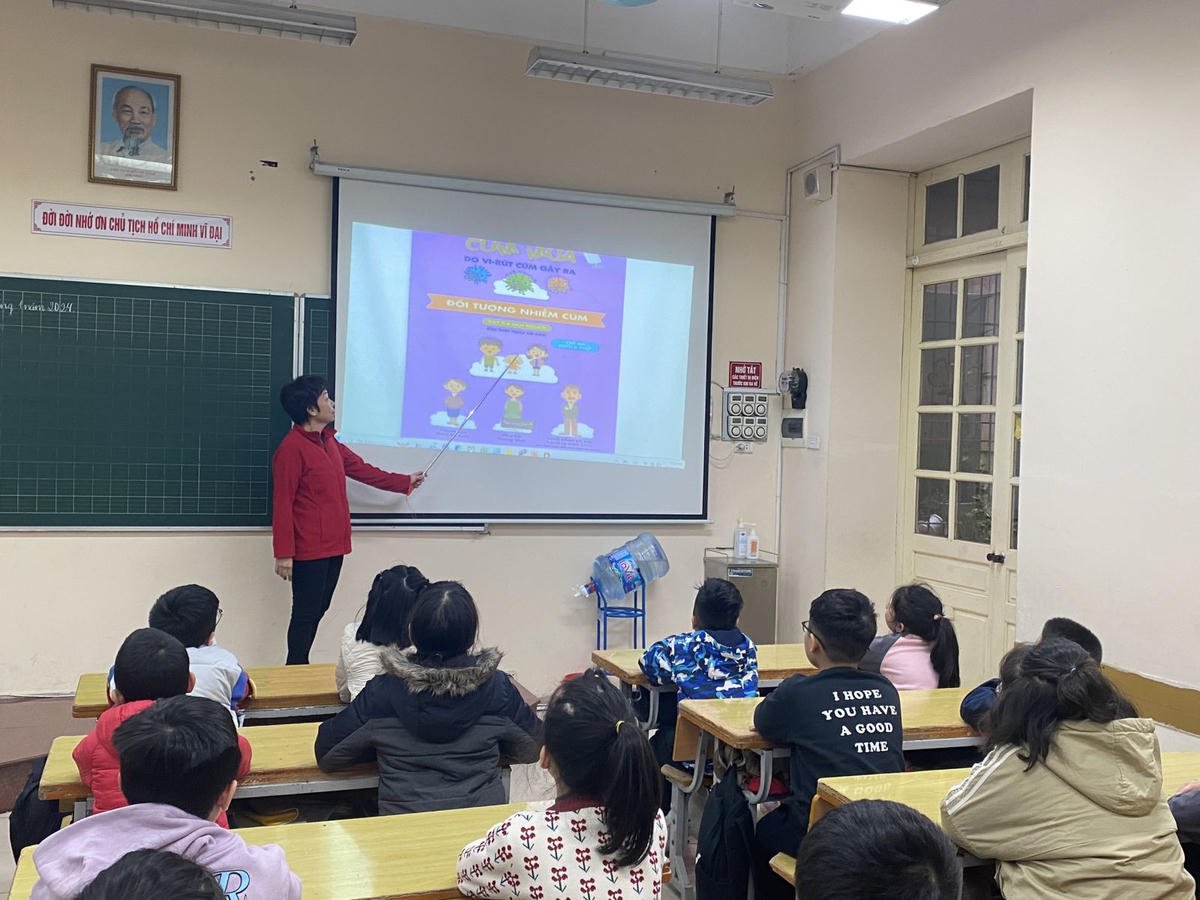
Accompany your child to improve their learning ability and skills
At the conference to comment on draft documents submitted to the 14th National Party Congress, Mr. Nguyen Quang Huan pointed out the painful reality of the country's education , which is that the graduation rate and excellent student rate in many places are abnormally high, reflecting the disease of achievements that has not been thoroughly resolved. To overcome this, Mr. Huan proposed that it is necessary to first overcome the situation of "worshiping" degrees and exams that are too formal. Student assessment needs to be strongly innovated to the method of assessment based on practical ability, eliminating rankings and not publicizing exam scores. Along with that, it is necessary to innovate the assessment of education quality through independent surveys, linking the responsibility of the head of educational institutions with actual results and applying AI technology to prevent cheating in exams.
In fact, from the 2024-2025 school year, the assessment of academic performance and training of middle and high school students has been implemented according to the instructions of Circular 22/2021/TT-BGDDT. Accordingly, for subjects assessed by comments, there will be 2 levels: passed, not passed; subjects assessed by comments combined with assessment by scores will be assessed according to 1 of 4 levels: good, fair, passed, not passed. There are no longer academic levels: excellent, average, weak, poor as in Circular No. 26/2020/TT-BGDDT, Circular 58/2011/TT-BGDDT. However, in many classes, the scores of each subject of students after each test, mid-term exam, and final exam are shared publicly by the homeroom teacher in the class group.
Ms. Ly Thu Dung (Truc Bach ward, Hanoi) has two children studying in junior high school. She shared that not only she but many parents in the class are very concerned about their children's scores and rankings. Ms. Dung said that although she does not want to put pressure on her children with scores, she still supports making the exam scores public. As for academic rankings, they do not have much influence because the most important thing is still the child's real ability. High or low rankings in the class, high or low rankings in the school... do not determine whether one passes or fails in a fiercely competitive exam like the entrance exam for grade 10 of high school in Hanoi and many other localities today.
The opinion of Mr. Duc Phuong (Kim Anh commune, Hanoi) when seeing his child's low score is not to scold, put more pressure on the child, making him feel self-conscious and bored. Accordingly, the problem is not whether to keep or remove the ranking, whether to make the test scores public or not, but how parents receive their child's learning results. Whether the test scores are public or not, it still reflects the child's ability at that level, what needs to be done to help the child improve his ability and skills, thereby improving the score is something that parents need to consider.
Ranking and performance pressure
Dr. Le Viet Khuyen - Vice President of the Association of Vietnamese Universities and Colleges said that in the university sector, the ranking of universities is still carried out by many prestigious organizations and the results are recognized by the world when reflecting the training quality, research capacity... of the schools according to the criteria set by the ranking. It is a channel for schools to refer to for improvement and more comprehensive development, and for parents and students, to have more understanding to consider choosing a school to study. In the general education sector, Dr. Khuyen said that it is necessary to look at the ranking issue from many angles. Although the graduation rate and excellent student rate in many places are unusually high, if the ranking is completely eliminated, will it reduce the motivation of students and teachers?
Looking at the problem in the context of education that is still heavily focused on achievements, Associate Professor Dr. Pham Manh Ha (Hanoi University of Science and Technology), a career consultant, said that rankings are part of the cause of inequality and unhealthy competition. “When rankings are emphasized, they easily turn into pressure, promoting behaviors of chasing scores, cramming, or even cheating, distorting educational goals. Removing rankings is not to encourage “not trying harder than others,” but to shift the focus from competing with friends by scores to competing with oneself by actual abilities. At the same time, Mr. Ha said that removing internal rankings is a necessary step to reduce the pressure of achievements, reallocate resources and focus on building a fair, quality education for all students, thereby creating a generation that is truly capable of competing internationally in a sustainable and healthy way.
Source: https://daidoanket.vn/co-nen-bo-xep-hang-hoc-tap-hay-khong.html


![[Photo] Special class in Tra Linh](https://vphoto.vietnam.vn/thumb/1200x675/vietnam/resource/IMAGE/2025/11/14/1763078485441_ndo_br_lop-hoc-7-jpg.webp)
![[Photo] Unique art of painting Tuong masks](https://vphoto.vietnam.vn/thumb/1200x675/vietnam/resource/IMAGE/2025/11/14/1763094089301_ndo_br_1-jpg.webp)



![[Photo] Unique architecture of the deepest metro station in France](https://vphoto.vietnam.vn/thumb/1200x675/vietnam/resource/IMAGE/2025/11/14/1763107592365_ga-sau-nhat-nuoc-phap-duy-1-6403-jpg.webp)






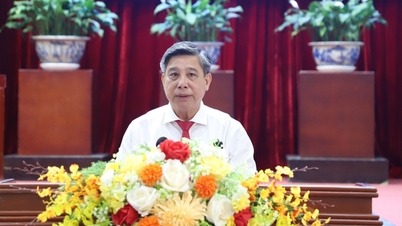







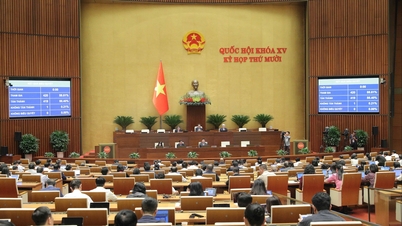


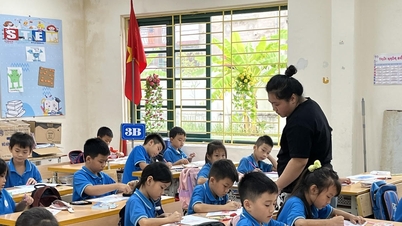
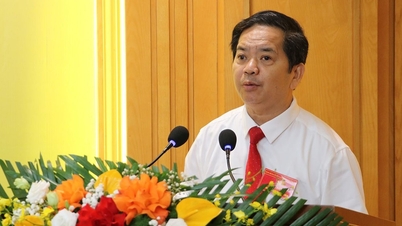

![[Photo] Deep sea sand deposits, ancient wooden ship An Bang faces the risk of being buried again](https://vphoto.vietnam.vn/thumb/1200x675/vietnam/resource/IMAGE/2025/11/13/1763033175715_ndo_br_thuyen-1-jpg.webp)








































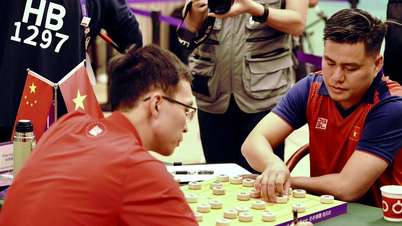













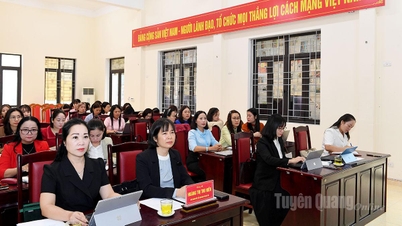





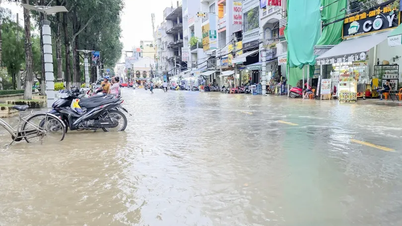









![Dong Nai OCOP transition: [Article 3] Linking tourism with OCOP product consumption](https://vphoto.vietnam.vn/thumb/402x226/vietnam/resource/IMAGE/2025/11/10/1762739199309_1324-2740-7_n-162543_981.jpeg)





Comment (0)